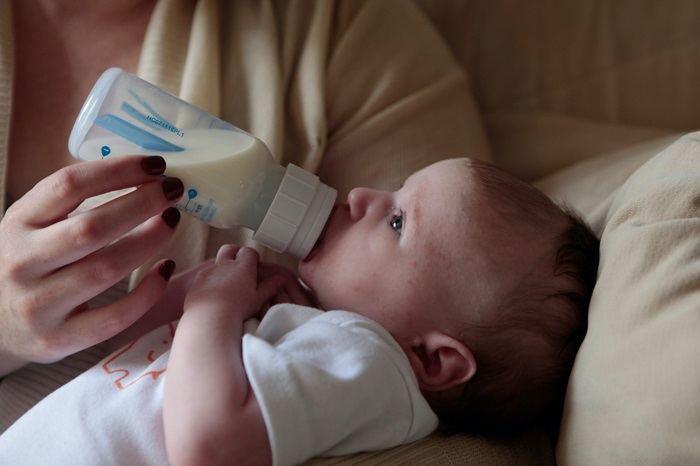Jaundice is a common condition in newborns, characterized by yellowing of the skin and eyes. It occurs when there is an excess of bilirubin, a yellow pigment produced during the normal breakdown of red blood cells. Newborns are particularly susceptible to jaundice due to their immature liver, which is not fully capable of processing bilirubin efficiently.
Types of Jaundice in Newborns
There are several types of jaundice that can affect newborns, including:
Physiological Jaundice: The most common type, usually appearing two to three days after birth and resolving on its own within two weeks.
Breastfeeding Jaundice: Occurs in the first week of life due to inadequate intake of breast milk, leading to dehydration and less frequent bowel movements, which reduce bilirubin elimination.
Breast Milk Jaundice: Develops after the first week of life and can last for several weeks. It is thought to be related to substances in the mother’s milk that increase bilirubin reabsorption in the intestines.
Pathological Jaundice: Results from underlying health conditions such as blood type incompatibility, infection, or liver disease, and requires medical intervention.
Importance of Feeding in Managing Jaundice
Feeding plays a crucial role in managing jaundice. Adequate feeding helps promote regular bowel movements, which aid in the elimination of bilirubin from the body. Both breast milk and formula have their benefits and considerations when it comes to jaundice management.
Breast Milk for Jaundice
Benefits of Breastfeeding
Nutritional Superiority: Breast milk provides optimal nutrition, containing the perfect balance of nutrients essential for newborn growth and development.
Immune Support: Breast milk is rich in antibodies and immune-boosting factors that help protect newborns from infections.
Bonding: Breastfeeding fosters a strong bond between mother and baby, promoting emotional well-being.
Challenges with Breastfeeding and Jaundice
Breastfeeding Jaundice: Inadequate breastfeeding can lead to dehydration and reduced bilirubin elimination, worsening jaundice.
Breast Milk Jaundice: Certain substances in breast milk may increase bilirubin reabsorption, prolonging jaundice.
Strategies to Manage Jaundice While Breastfeeding
Frequent Feeding: Encourage frequent breastfeeding (at least 8-12 times per day) to ensure adequate milk intake and hydration.
Lactation Support: Seek help from lactation consultants to address any breastfeeding challenges and ensure effective milk transfer.
Supplementation: In cases of significant jaundice, temporary supplementation with formula or expressed breast milk may be recommended to increase fluid intake and promote bilirubin elimination.
Formula for Jaundice
Benefits of Formula Feeding
Consistent Intake: Formula feeding provides a consistent and measurable intake of milk, ensuring adequate hydration and nutrition.
Easier Monitoring: It is easier to monitor the volume of milk intake, which can be important in managing jaundice.
Alternative Option: Formula can serve as a temporary alternative if breastfeeding challenges arise or if the mother is unable to breastfeed.
Challenges with Formula Feeding
Lack of Immune Benefits: Formula does not contain the immune-boosting properties of breast milk.
Potential for Overfeeding: Overfeeding formula can lead to excessive weight gain and potential gastrointestinal discomfort.
SEE ALSO: Which Time Sunlight is Good for Newborn Jaundice?
Comparing Breast Milk and Formula for Jaundice
Efficacy in Reducing Bilirubin Levels
Studies have shown that both breast milk and formula can be effective in reducing bilirubin levels when feeding is adequate. The choice between breast milk and formula should be based on individual circumstances and medical recommendations.
Impact on Overall Health
Breast Milk: Promotes optimal health and development, supports immune function, and fosters emotional bonding.
Formula: Provides consistent nutrition and hydration, but lacks the immune benefits of breast milk.
Medical Guidance
Healthcare providers play a critical role in guiding parents on the best feeding practices for managing jaundice. They may recommend:
Exclusive Breastfeeding: For most healthy newborns with physiological jaundice, exclusive breastfeeding is encouraged, with close monitoring of bilirubin levels.
Supplementation: In cases of significant jaundice or breastfeeding challenges, temporary supplementation with formula or expressed breast milk may be advised.
Phototherapy: For severe jaundice, phototherapy (light treatment) may be necessary in conjunction with feeding strategies to lower bilirubin levels.
Parental Considerations and Preferences
Parents should consider their own preferences, lifestyle, and the advice of healthcare providers when deciding between breast milk and formula for managing jaundice. Key considerations include:
Breastfeeding Goals: Parents who are committed to breastfeeding should seek support to address any challenges and ensure adequate milk intake.
Convenience and Practicality: Formula feeding may be more convenient for some families, particularly if there are breastfeeding difficulties.
Health and Well-being: The overall health and well-being of both the mother and baby should be prioritized in making feeding decisions.
Key Takeaways
Breastfeeding: Offers optimal nutrition and immune support, but requires frequent feeding and may need supplementation in cases of significant jaundice.
Formula Feeding: Provides consistent and measurable intake, making it a practical option for managing jaundice, but lacks the immune benefits of breast milk.
Medical Guidance: Essential for making informed decisions and ensuring the health and well-being of the newborn.
Ultimately, the goal is to ensure that the baby receives adequate nutrition and hydration to effectively manage jaundice and promote overall health and development. Parents should work closely with healthcare providers to determine the best feeding strategy for their newborn’s unique situation.
Conclusion
There is no one-size-fits-all answer to whether formula or breast milk is better for jaundice. Both options have their benefits and challenges. The best approach is individualized, taking into account the specific needs of the baby, the mother’s ability to breastfeed, and the guidance of healthcare providers.


